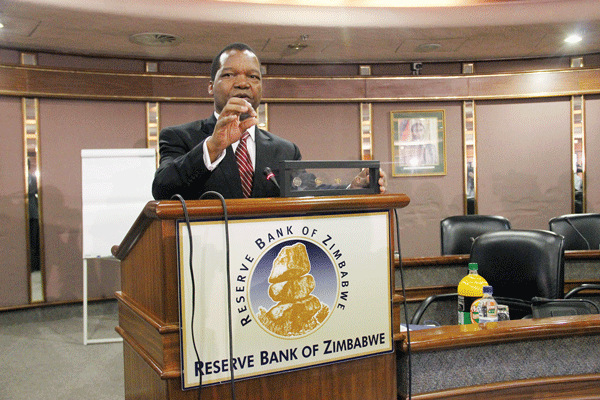
The Reserve Bank of Zimbabwe (RBZ) has extended the export incentive scheme to the tourism sector, recognising the industry as a quick-win in generating foreign currency, players have said.
BY TATIRA ZWINOIRA

The export incentive was introduced last year under a $200 million facility guaranteed by the African Export-Import Bank under the bond notes regime.
Qualifying exporters get an extra 5% in bond notes.
In his monetary policy statement released last week, RBZ governor, John Mangudya said the bank was extending the export incentive scheme to the tourism industry, as a reward for its contribution to foreign currency generation.
He said the depreciation of the South African rand and other regional currencies affected the price competitiveness of the country’s tourism industry, considering that the bulk of tourists come from Africa, particularly South Africa.
“In view of this, Zimbabwe becomes more expensive as a tourist destination as the US dollar strengthens against the regional currencies. The export incentive scheme is, therefore, expected to provide some cushion to allow the tourism sector to adjust prices to remain competitive,” Mangudya said.
Tourism and Hospitality Industry minister Walter Mzembi applauded Mangudya for listening to sectoral representation and “reflecting and aligning to global tourism trends, which now capture tourism, as the third global export earner”.
- Chamisa under fire over US$120K donation
- Mavhunga puts DeMbare into Chibuku quarterfinals
- Pension funds bet on Cabora Bassa oilfields
- Councils defy govt fire tender directive
Keep Reading
“He needs to be applauded because the behaviour of currencies single-handedly after safety and security is a key determinant of growth in the tourism sector, as weaker currencies and devaluations tend to attract traffic from stronger currency source markets. A case in point is how the United Kingdom has benefited from Brexit with its attendant weakening of the pound sterling that has seen tourism spending surge to a 7% year-on-year increase,” he said.
Mzembi said dollarisation has severe “competitiveness unintended consequences, and any measure that mitigates that, is welcome”.
“There is no incentive for a rand source market to holiday in Zimbabwe, and measures to incentivise rand acceptance as transactional currency in the tourism sector are most welcome,” he said.
Mzembi said there was also need to attend to US dollar denominated cost drivers — labour, power, water and other cost of sales, which can only be tamed by a “holistic internal devaluation exercise and the benefits passed to tourism to achieve effective and competitiveness in rand pricing in near parity with South Africa itself”.
Zimbabwe Council of Tourism president, Tich Hwingwiri told NewsDay that: “The decision to extend the incentive is a welcome development, as government continues to recognise industry as a quick win, especially during these times of the scarcity of the foreign currency.
“Industry is looking forward to execution of ease to do business recommendations in order to invite more visitors to our country thus resulting in more foreign currency inflows.”
Tourism is considered a low hanging fruit, and provides the quickest turnaround ahead of other sectors such as mining and agriculture.
Zimbabwe Tour Operators’ Association former chairperson, Wengayi Nhau said he also welcomed the move, but added the central bank needed to make special considerations to tour operators, who needed to import for their business.
“We will do our best because we are an exportable service. There are fundamentals though that still needs to be addressed. Our sector being as it is by its nature most of our services and goods that we then need as inputs come from outside,” he said.











